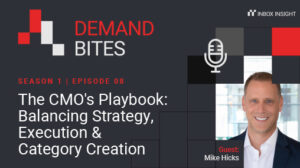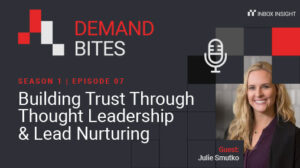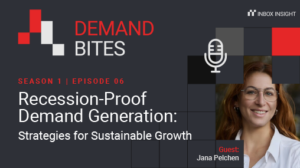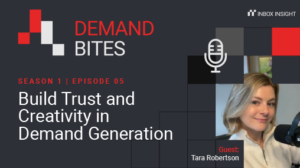Understanding the behavior and preferences of potential buyers is pivotal for any successful B2B business. A key component of this understanding is intent data. It offers a wealth of insights into the customer journey and their key activities, allowing businesses to tailor their services and strategies accordingly.
What are the greatest usages, benefits and challenges of B2B buyer intent data? How does utilizing the power of intent positively impact the sales journey?
This article delves into the most crucial intent data statistics, providing a comprehensive overview of this essential marketing tool…
Reading time: 3 minutes
Intent data marketing
Current usage of intent data
According to various reports, it appears that only a quarter of B2B businesses are currently leveraging intent data and monitoring tools. However, a staggering 99% of large corporations are utilizing intent data in some way. This discrepancy suggests that while large companies have recognized what intent data can achieve, and harnessed it, smaller businesses may still be finding their feet in understanding how to effectively leverage intent.
Confidence in intent data usage
Despite the complexity of interpreting and applying intent data, B2B marketers have expressed high confidence levels in their ability to use this tool effectively. A sizeable 98% of marketers are confident in their intent data practices, suggesting a positive outlook and maturity in this field.
Intent data budget allocation
Intent data is not only a powerful tool but also a significant investment. Around 40% of businesses are dedicating more than half of their marketing budget to intent data – with almost 70% of them planning to increase their spending on intent data in the following year, indicating the perceived value of intent as a tool for marketing teams.
Intent data in future strategies
The future of intent data looks promising. 50% of businesses who currently do not invest in intent data, plan to incorporate it into their strategies in the next year. This trend indicates a growing recognition of intent data’s potential benefits among B2B businesses.
3 key benefits of intent data
1. Impact on sales and ROI
The most compelling argument for the usage of intent data is its positive impact on sales and return on investment (ROI). An overwhelming 99% of businesses have reported an increase in sales or ROI after implementing intent data in their strategies.
2. Essential for demand generation
Almost all marketers (98%) consider intent data to be a fundamental element for successful demand generation. In fact, almost half of these respondents view intent data as the heart of their entire B2B marketing operation.
For more insights, check out our compilation of 50+ demand generation statistics to help refine your marketing strategy.
3. Prioritization of in-market buyers
An average B2B sales cycle lasts upward of 4-6 months, so knowing which stage your potential customers are at along this buyer journey is key to understanding exactly how to target, engage and resonate with them most effectively.
Intent data therefore allows marketers to prioritize buyers based on their propensity to purchase. It gives a clear indication of which prospects are in-market and ready to make their final buying decision.
Challenges in intent data usage
Despite its clear benefits, intent data usage is not without its challenges. The top three challenges reported by marketers revolve around human errors – including making insights actionable, integrating insights into the wider B2B marketing strategy, and ensuring teams are utilizing intent information properly.
To uncover the common pitfalls in utilizing intent data, delve into our comprehensive article. Learn from industry insights to avoid repeating these mistakes and optimize your intent data strategy for success.
First-party vs. third-party data
When it comes to intent data, marketers have the option of using first-party data or third-party data. Over half of marketers (55%) opt to use a combination of both types for a comprehensive approach. However, the majority still rely on first-party data as their main source, suggesting a potential underutilization of third-party data.
AI and intent data
The use of artificial intelligence (AI) is also becoming prevalent in intent data analysis. A third of companies are now using AI, and a significant 84% of these users report that AI has aided them in understanding their customers’ intentions.
Intent data and the buyer journey
Buyer research behavior
Today’s buyers are savvier than ever, often conducting extensive research before reaching out to suppliers. In fact, B2B buyers conduct an average of 12 online searches before visiting a specific brand’s website. Moreover, 81% of sales representatives observe that buyers increasingly research before reaching out.
Role of intent data in sales and marketing
Staying one step ahead in the B2B landscape can be challenging, given the constant technological capabilities and advancements available to marketers in today’s digital age. Intent data is the means to combat this.
It allows businesses to understand exactly what their potential customers are searching for, so that messaging and content can be tailored accordingly and effectively. This helps to align sales and marketing teams through gaining a greater understanding of customer behavior – resulting in shorter sales cycles and higher conversion rates.
Final thoughts
Intent data has established itself as a critical tool for modern B2B businesses. Its benefits are considerable, from improving sales to enhancing marketing strategies. The future of intent looks promising, with companies planning to increase their investment in the coming years.
Given the continuous advancement in technology and data analysis techniques, intent data will undoubtedly continue to evolve – offering even more potent insights for businesses to capitalize on. Which is why investing time and resource to truly understand and harness the power of intent is vital to staying ahead in this competitive business landscape…
Ready to capture in-market demand? Discover our demand generation programs or speak to one of our experts today.






